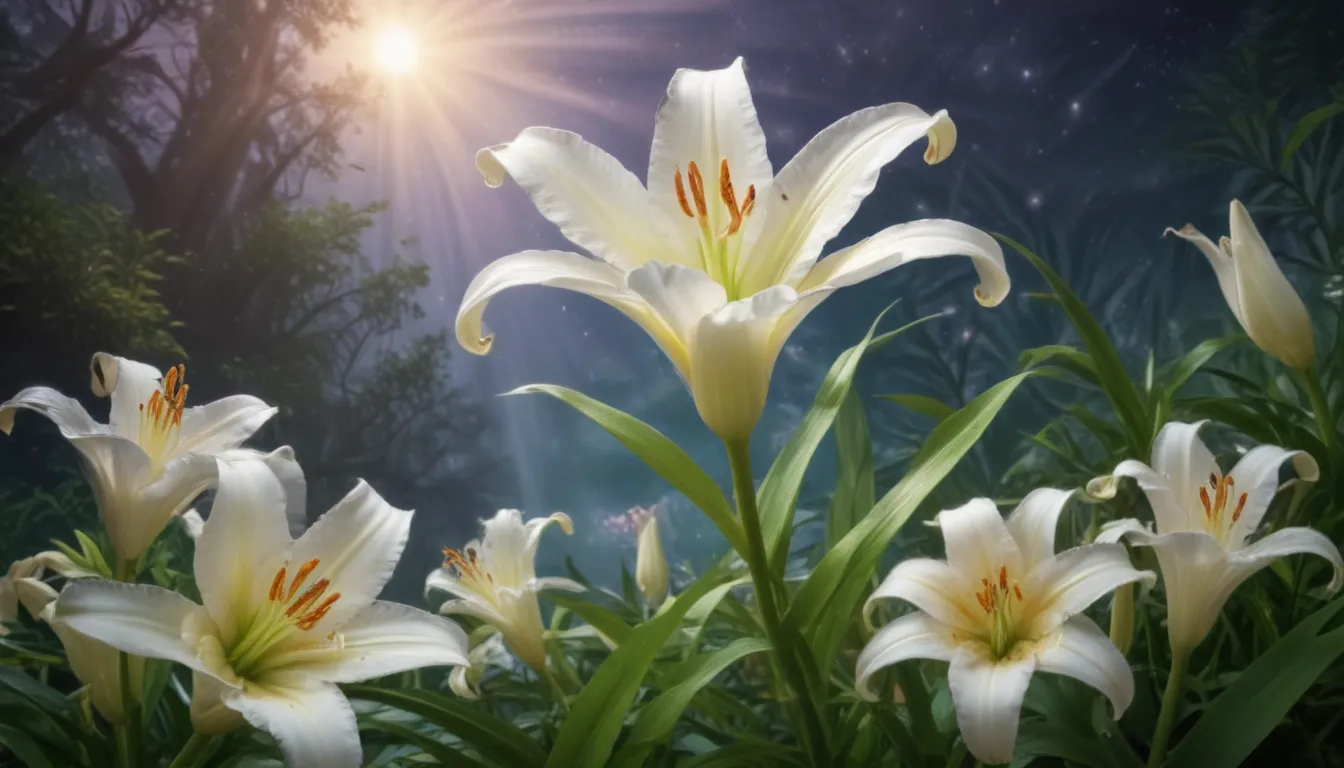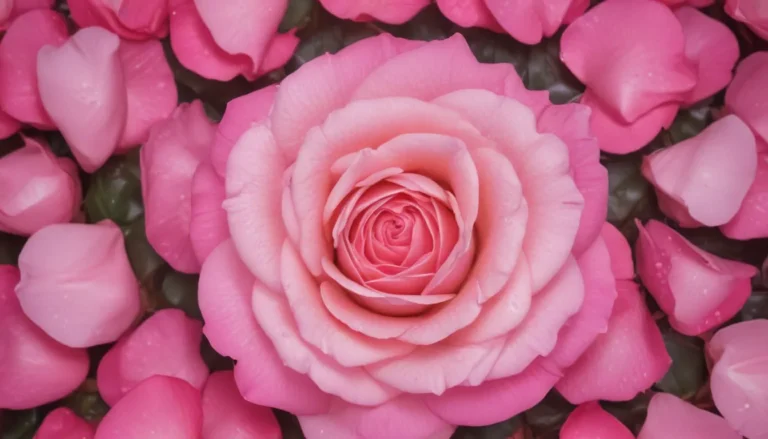
Lilies are one of the most beautiful flowers in the world, known for their elegance, grace, and delicate scent. But beyond their physical beauty, lilies also carry deep spiritual meaning that can enrich our lives and understanding of the world around us. In this comprehensive guide, we will explore the symbolism and significance of lilies in different cultures and traditions.
Lilies in Ancient Egyptian Culture
The ancient Egyptians revered the lotus and the lily as sacred symbols of rebirth, purity, and fertility. The white lotus represented the sun god Ra’s journey through the underworld, while the blue lotus symbolized the Nile River and its life-giving waters. The lily, on the other hand, was associated with the goddess Hathor who protected women during childbirth and ensured their safe passage into motherhood.
The Egyptians believed that lilies grew in fields of paradise, where they could be picked by souls who had been purified after death. Consequently, lilies were often used as offerings to the gods and placed on tombs to guide the deceased towards eternal life. Today, this association with rebirth and spiritual growth continues to make the lily a popular choice for funeral services and memorials worldwide.
Lilies in Christianity
In Christian symbolism, lilies represent purity, innocence, and the resurrection of Jesus Christ. The Virgin Mary is often depicted holding a lily or standing amongst them, symbolizing her immaculate conception and role as the mother of God. Additionally, white lilies are frequently used in church ceremonies to celebrate baptisms, weddings, and funerals due to their association with new beginnings, eternal life, and the triumph over death.
The lily’s connection to Christ can be traced back to a biblical passage in Luke 12:27-28 where Jesus says, “Consider how the wildflowers grow. They do not labor or spin. Yet I tell you, not even Solomon in all his splendor was dressed like one of these.” This verse has been interpreted as an allegory for the humility and simplicity of Christ’s divine nature, which is reflected in the simple beauty of a lily.
Lilies in Eastern Philosophy
In Chinese culture, lilies symbolize purity, nobility, and wealth. White lilies are considered particularly auspicious and are often given as gifts during special occasions like birthdays, weddings, and new year celebrations. In Japan, lilies have a more complex symbolism: white lilies signify majesty and purity, while red ones represent passion and courage.
Buddhism also recognizes the spiritual significance of lilies. The lotus flower, which resembles a lily, is often depicted in Buddhist art as a symbol of enlightenment and the human potential for self-improvement. According to this tradition, the lotus grows from the muddy depths of a pond but emerges with its petals pure and untainted. This image serves as a reminder that even though we may be born into difficult circumstances or struggle with negative emotions, we all have the potential to rise above them and achieve spiritual growth and enlightenment.
Lilies in Native American Culture
For many indigenous tribes across North America, lilies hold deep spiritual significance and are often used in ceremonial practices. The Blackfoot people associate the lily with the sun and consider it a symbol of strength and power. In the Cherokee culture, the white lily represents peace and unity, while the yellow lily signifies happiness and joy.
The Ojibwe tribe believes that lilies possess healing properties and are often used in traditional medicine practices to treat various ailments. Additionally, lilies play an essential role in many Native American creation stories, where they symbolize life’s beauty, fragility, and the interconnectedness of all living things.
Conclusion: Embracing the Spiritual Meaning of Lilies
As we have seen, lilies hold great spiritual significance across various cultures and traditions. Whether it’s their association with purity and rebirth in ancient Egypt or their symbolism of enlightenment and self-improvement in Buddhism, these delicate flowers offer us valuable insights into the human experience and our place within the cosmos.
By incorporating lilies into our lives – whether through contemplation, meditation, or simply appreciating their beauty – we can deepen our connection to these universal truths and find solace in the knowledge that even amid life’s challenges, there is always hope for growth, transformation, and spiritual renewal.
So, next time you come across a field of lilies or receive one as a gift, take a moment to reflect on their profound spiritual meaning and let them inspire you on your own journey toward enlightenment.





